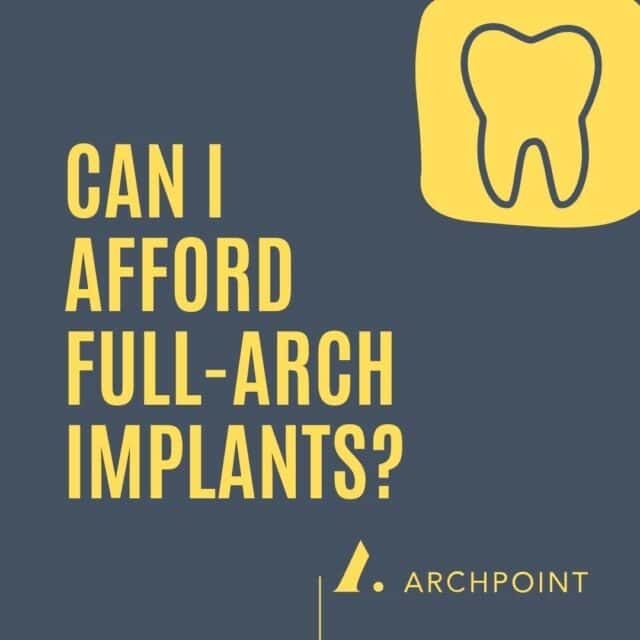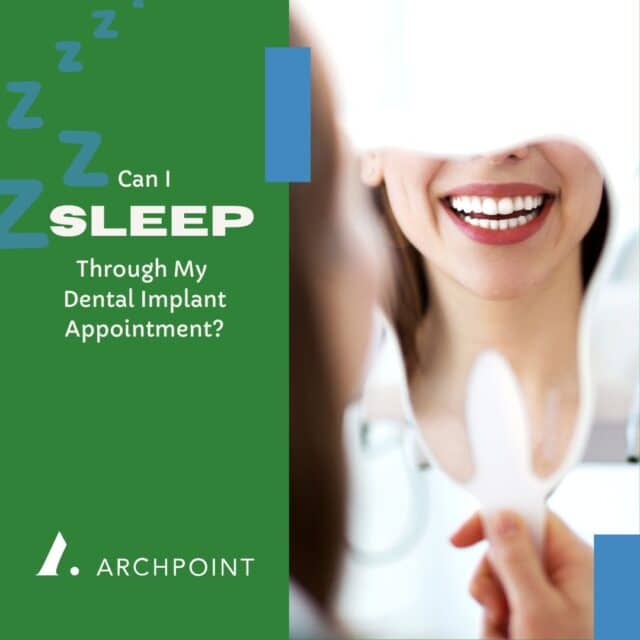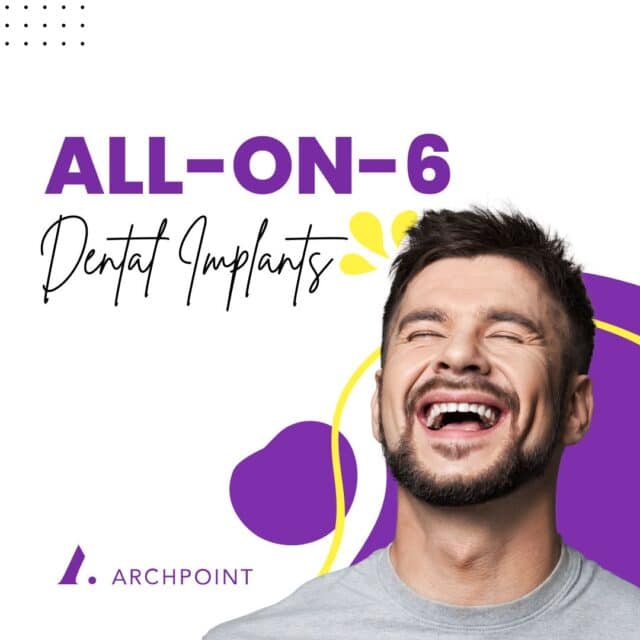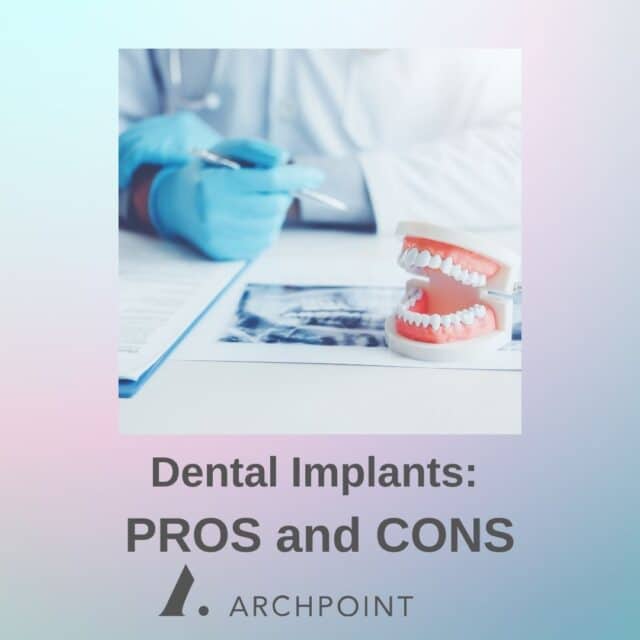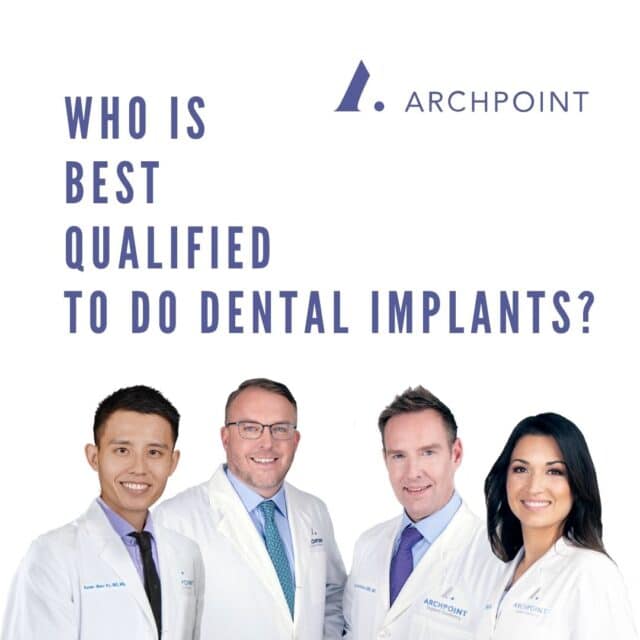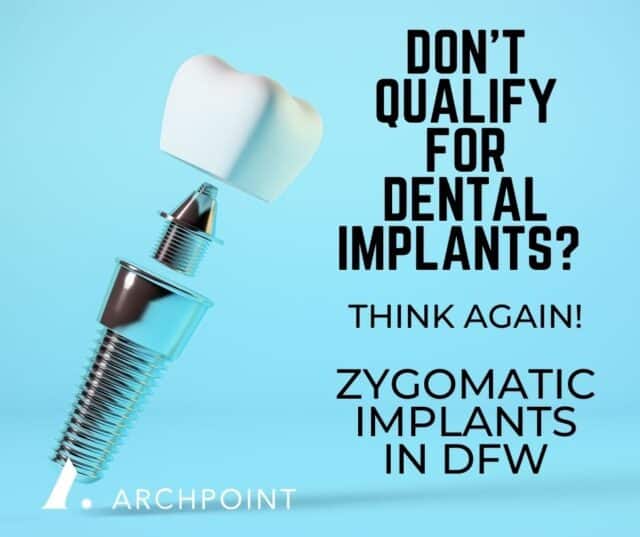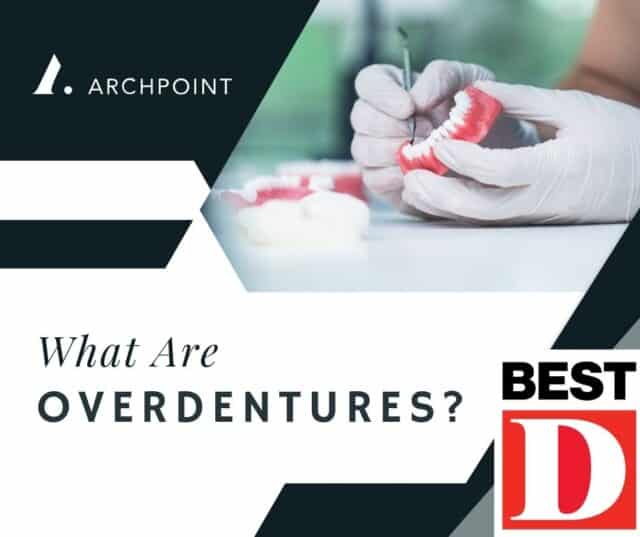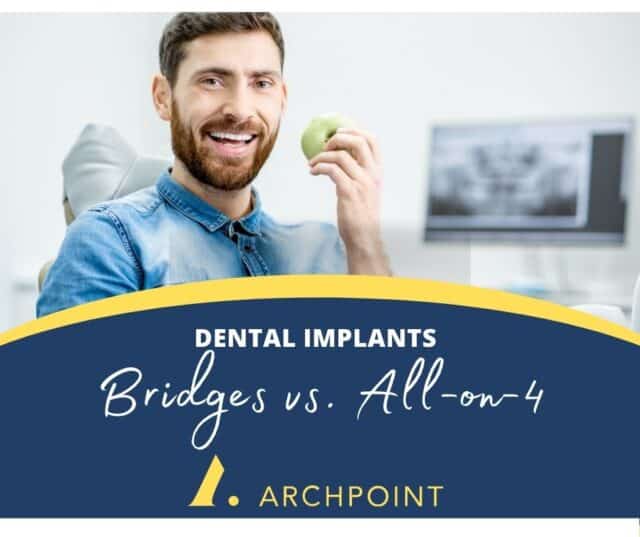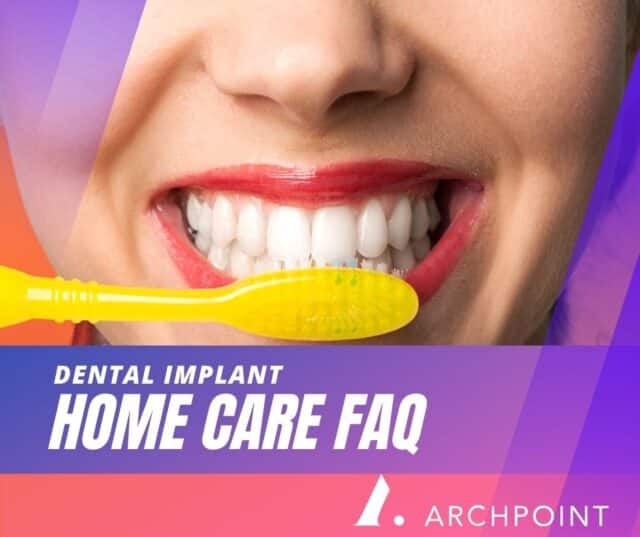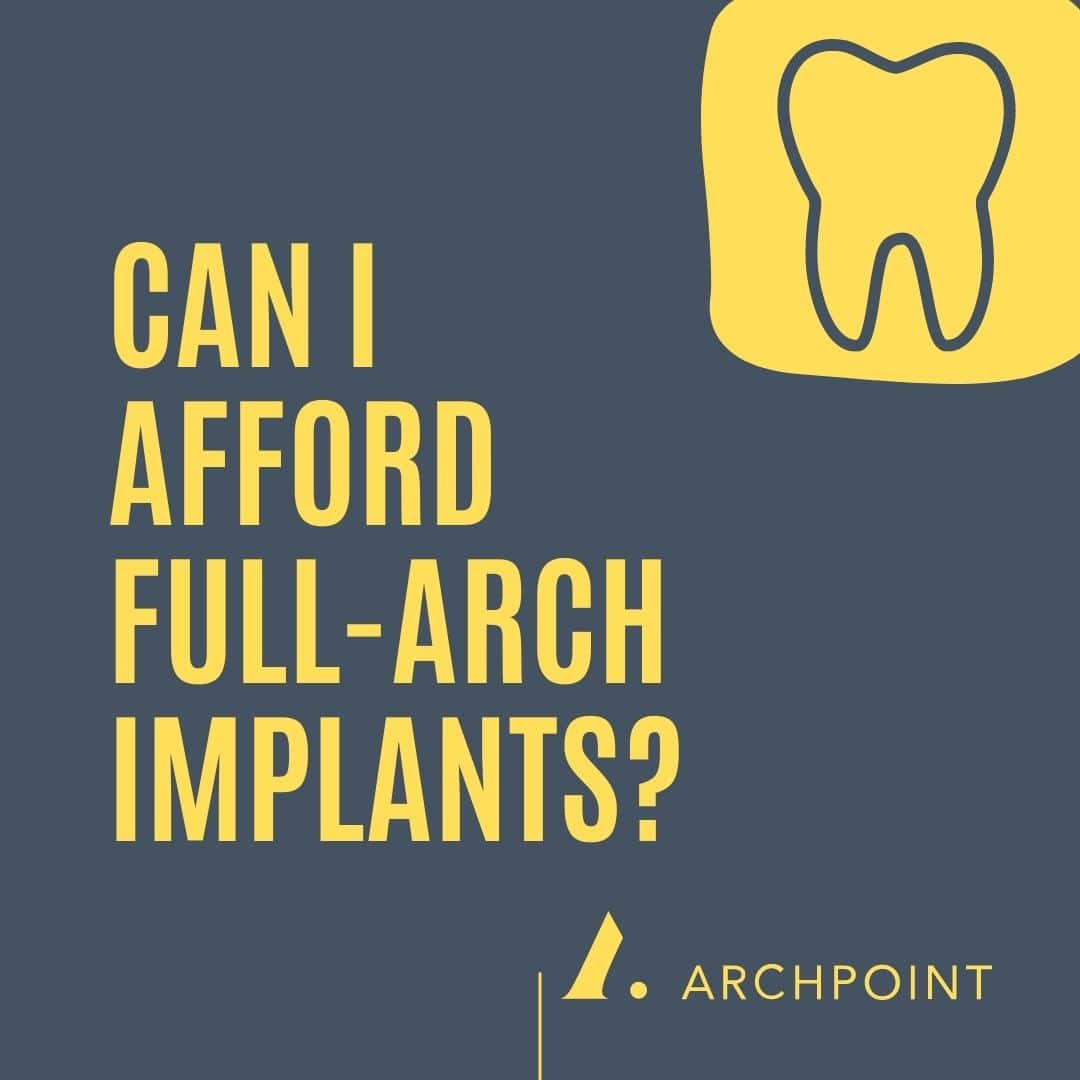
Anytime someone is considering an “All-on” implant treatment to restore their smile, there are always discussions to be had about the price. How much does All-on-4 treatment cost? Can I afford All-on-6 implants? Is there a way to finance my implant treatment? Rest assured, there are practical ways to afford full mouth implants while still working within your budget.
Depending on your situation, here are some of the options you’ll want to consider when you’re figuring out how to afford full mouth implants:
Get a Customized Care Plan
The only way to find out if you can afford full mouth implants is to first have a complete exam and work up with a dental implant specialist. During this exam, a series of X-rays and measurements will be taken. From there, you’ll also discuss adjunctive services you want, like sedation, or the type of implant system you prefer (such as fixed All-on-4 or a removable overdenture that snaps onto implants.) At that point, our DFW implant specialists can work up a detailed care plan that discloses all fees and procedures.
You don’t have to commit to a single thing. This care plan is specifically for planning purposes to help you decide whether you can afford full mouth implants or if another option is more appropriate. Not everyone qualifies for these treatments, so it’s important to see an implant specialist in person.
Check with Your Dental Insurance
After you have a black and white treatment plan, you can have your implant dentistry team work up an itemized plan that incorporates your dental insurance policy. Depending on what your coverage is like—and even if you’re using any medical coverage, which some people do—this will help further reduce your out-of-pocket costs related to your implant procedure. Even though dental insurance is naturally prevention-based, it can help minimize the expenses related to tooth replacement, making it easier to afford full mouth implants.
Keep in mind that nearly every insurance policy has an annual maximum allowable, which is a set dollar amount they pay toward treatment every year. Once that amount is reached, you’ll want to explore other financing options to make up for any difference. At ARCHPOINT, we provide these insurance estimates upfront so that you’re never caught off guard by your care plan amounts.
Ask About Monthly Financing
Can you make affordable monthly payments on your implants? Absolutely. While some people go as far as to get personal loans through their credit union or refinance a house to use their home equity (both of which are great ideas when you want to easily afford full mouth implants), others will get in-house dental financing directly from their implant specialists.
For dental implant financing, we usually recommend a low-interest or 0% financing program, both of which allow for affordable monthly payments. Similar to what you might do if you’re getting braces for your teen or about to start Invisalign treatment. A lot of people do the same thing if they’re about to have a smile makeover with dental veneers. You can actually apply for these types of programs in our office with our treatment coordinators.
Full-arch implants aren’t any different. Once you have your treatment plan and how much it will cost, you can apply for dental financing and see exactly what your options are. For some, it’s 0% interest payments for 12-18 months. For others, it’s a low-interest option that can be paid out for 24 months or even longer than that.
Financing a new smile means you can afford full mouth implants just as easily as you would if you were about to buy a new car or take over your student’s college loan. The only difference is that you’re investing in your personal health and quality of life. Your smile is one thing that lasts forever and affects nearly every relationship you have.
Utilize your HSA/FSA
Don’t forget about using any supplemental medical expenditures, such as a health savings account (HSA) or flex spending account (FSA), to afford full mouth implants. Depending on the type of account you have, you can set pre-tax money aside up to a certain amount each year to pay toward medical—and yes—dental procedures, including implant treatment.
If you already know you’re going to be budgeting to afford full mouth implants, this can help you know how much money to invest into your FSA/HSA, even if you’re planning on waiting until the next calendar year to start your treatment. Dental implant therapy isn’t something to be rushed, especially when it comes to an All-on-4 or All-on-6 implant system.
Consider Your Long-Term Investment
Dental implants provide the best long-term investment of any tooth replacement. When you compare dental implant prices in DFW to things like partials, full dentures, or bridges—all of which have to be replaced every several years—dental implant treatment is more cost-effective. Considering the cost per tooth and the long-term success of implants, a full-arch system is typically a one-time process that you’re investing in. When you think about it that way, you’re setting yourself up to save money in the years and decades ahead.
You could compare it to a good pair of shoes (even though dental implants actually last longer than that!) When you invest in quality, durable shoes, you get to wear them longer and more often without having to worry about whether or not they’re going to wear out and need to be replaced. Whereas a budget pair of shoes might get you through one season, if that, before they fall apart and need to be replaced. Mathematically, you usually wind up paying more money to wear the “cheap” shoes every day than you are a good, quality pair.
This is why figuring out how to afford full mouth implants is so important, especially when you’re working with a budget!
Get a Custom Price Quote
Yes, you can afford full mouth implants. At ARCHPOINT, we customize every implant plan to the individual. Whether it’s 2-4 implants or 4-6 (or more), there’s something for everyone. After your evaluation, we can provide you with a black and white pricing plan for the treatment related to your unique smile.
Call ARCHPOINT Implant Dentistry in Ft. Worth or Dallas today to reserve your next appointment.
